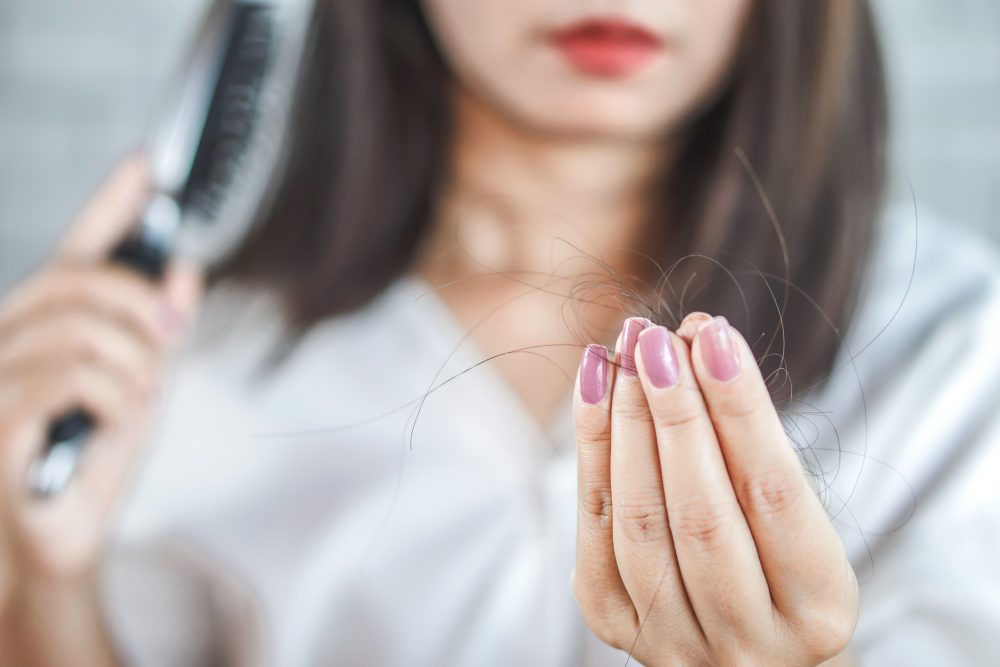
Menopause is a significant milestone in a woman’s life, often accompanied by various physical and emotional changes. One of the lesser-discussed yet deeply impactful changes during menopause is its effect on hair. For many women, hair is not just a part of their appearance; it’s tied to their identity, self-esteem, and confidence. When menopause affects hair health, the experience can be emotionally challenging.
As women age and approach menopause, their bodies undergo hormonal shifts that play a crucial role in hair health. The primary culprit is the decrease in estrogen and progesterone, hormones that promote hair growth and thickness. When these levels drop, hair growth slows, and the hair’s overall texture may change, becoming thinner or more brittle. While some hair loss is natural with aging, menopause can accelerate this process.
One common concern for menopausal women is hair thinning. This typically occurs gradually, with hair becoming finer and more prone to breakage. Hair may also lose its youthful volume, appearing limp or less full. The thinning usually begins at the crown or around the part line, where it becomes more noticeable. Unlike male pattern baldness, which usually follows a receding hairline, women experience more diffuse hair thinning across the scalp.
Another effect of menopause on hair is hair shedding. Many women find that they shed more hair than usual during brushing or washing. While some hair loss is part of the natural hair growth cycle, excessive shedding during menopause can be linked to the hormonal imbalance between estrogen and testosterone. As estrogen decreases, the effect of androgens, or male hormones, becomes more pronounced. This can lead to an increase in androgenetic alopecia, a condition that causes hair follicles to shrink and produce finer, shorter hairs over time.
Dryness and brittleness are other common issues. With the reduction in estrogen, the scalp’s natural oils decrease, leaving hair feeling dry and brittle. This dryness can make hair more prone to breakage and split ends, further contributing to thinning. As the scalp produces less oil, women may also notice a change in their scalp health, with some experiencing more flakiness or sensitivity.
While these changes can be distressing, it’s important to note that menopausal hair loss is not always permanent, and there are steps women can take to maintain their hair’s health. The first step is recognizing that this is a natural part of aging and that it’s okay to seek help if the changes feel overwhelming.
A key approach to managing hair loss during menopause is supporting hormonal balance. Some women find relief through hormone replacement therapy (HRT), which can help stabilize estrogen levels and slow down the rate of hair thinning. However, HRT is a personal decision that should be discussed with a healthcare provider, as it may not be suitable for everyone.
Beyond hormonal treatments, adopting a healthy hair care routine is essential. This includes using gentle shampoos and conditioners that are formulated for thinning or aging hair. Avoiding heat styling, harsh chemicals, and tight hairstyles can also help reduce breakage and protect the hair. Products that add moisture, such as leave-in conditioners or hair oils, can combat dryness and improve hair texture.
A balanced diet rich in vitamins and minerals is another critical factor in hair health. Nutrients like biotin, vitamin D, zinc, and omega-3 fatty acids are known to promote healthy hair growth. Some women find that taking supplements or adjusting their diets to include more nutrient-dense foods helps improve their hair’s condition during menopause.
For those seeking additional solutions, topical treatments such as minoxidil (commonly known as Rogaine) have been shown to stimulate hair growth and slow thinning. This over-the-counter treatment can be applied directly to the scalp and has been effective for many women in regrowing hair or preventing further loss.
Menopause can also be an opportunity to explore new hairstyles that suit the changing texture and volume of your hair. Consulting with a hairstylist who understands the effects of menopause can help women find flattering styles that add volume and vitality to thinning hair.
While hair loss and thinning during menopause can be emotionally difficult, understanding the causes and options for treatment can empower women to take control of their hair health. With the right care, it’s possible to navigate this phase with confidence, knowing that beauty and self-expression are not defined by the number of strands on one’s head.

